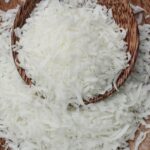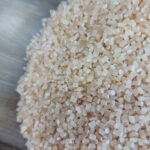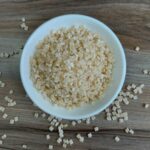CASHEW NUT SHELL OIL
Modified tapioca starch has become an indispensable ingredient in the food industry, particularly in the production of ketchup. As we step into 2024, the applications of this versatile starch are transforming food manufacturing processes, enhancing product quality, and driving market growth. In this article, we delve into how modified tapioca starch is revolutionizing ketchup production, its benefits, and the potential it holds for the industry.

Table of Contents
ToggleWhat is Modified Tapioca Starch?
Modified tapioca starch is derived from the tapioca plant, which is extensively cultivated in tropical regions. Through chemical, physical, or enzymatic processes, the native starch is altered to enhance its functional properties. This modification improves its stability, viscosity, and resistance to high temperatures, making it ideal for various food applications.

The Role of Modified Tapioca Starch in Ketchup Production
Improved Texture and Consistency Modified tapioca starch enhances the texture and consistency of ketchup. It acts as a thickening agent, ensuring a smooth and homogenous product. This starch provides the desired viscosity, preventing separation of water and solids, which is crucial for maintaining product quality.
Enhanced Shelf Life One of the significant benefits of using modified tapioca starch is its ability to extend the shelf life of ketchup. The starch reduces syneresis (the separation of liquid from a gel) and retrogradation, ensuring the ketchup remains stable and fresh over time.
Cost-Effective Solution Compared to other starches, modified tapioca starch is cost-effective. Its availability and low production cost make it a preferred choice for manufacturers looking to optimize production costs without compromising quality.
Allergen-Free and Non-GMO Modified tapioca starch is gluten-free and non-GMO, catering to the growing demand for allergen-free and non-genetically modified ingredients. This characteristic makes ketchup made with tapioca starch suitable for a broader consumer base, including those with dietary restrictions.
Future Trends in Modified Tapioca Starch Applications
As the food industry continues to evolve, several future trends are emerging in the use of modified tapioca starch:
Expansion into Other Condiments Beyond ketchup, modified tapioca starch is finding applications in other condiments such as mustard, mayonnaise, and salad dressings. Its ability to improve texture and stability makes it an excellent choice for these products.
Innovations in Clean Label Products With consumers increasingly demanding clean label products, manufacturers are exploring new ways to use modified tapioca starch as a natural, clean-label thickening and stabilizing agent. This trend is expected to drive further innovation and adoption of tapioca starch in various food products.
Sustainable and Eco-Friendly Production The sustainability of tapioca cultivation and the eco-friendly nature of modified tapioca starch production processes are gaining attention. Manufacturers are focusing on reducing their environmental footprint, making modified tapioca starch a more attractive option.
Health and Nutritional Benefits Research is ongoing into the potential health and nutritional benefits of modified tapioca starch. Its role in reducing calorie content, enhancing dietary fiber, and providing prebiotic benefits are areas of interest that could open new market opportunities.
Conclusion
In conclusion, modified tapioca starch is a game-changer in the ketchup production industry. Its ability to improve texture, extend shelf life, and provide a cost-effective, allergen-free solution makes it an invaluable ingredient for manufacturers. As the food industry continues to evolve, the applications of modified tapioca starch will undoubtedly expand, offering new opportunities for innovation and growth. Additionally, its sustainable and eco-friendly production processes align with the increasing demand for environmentally conscious products. Manufacturers looking to stay ahead in the competitive food market should consider integrating modified tapioca starch into their production lines to capitalize on its numerous benefits. Embrace this innovative ingredient to enhance product quality and meet consumer demands.
For more information on how modified tapioca starch can benefit your production processes, contact ABIMEX GROUP today.












